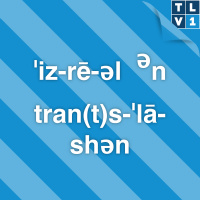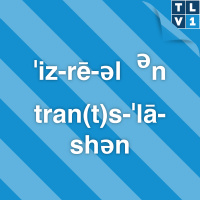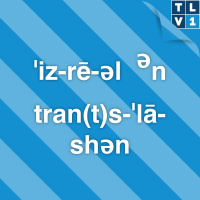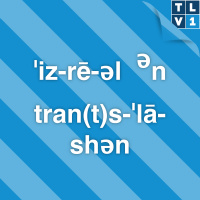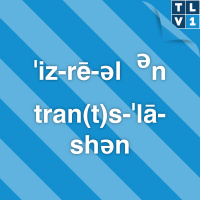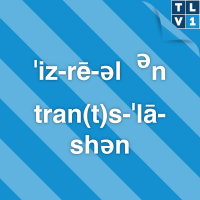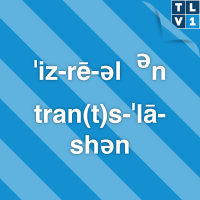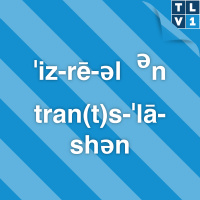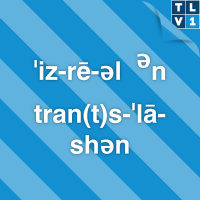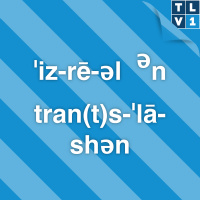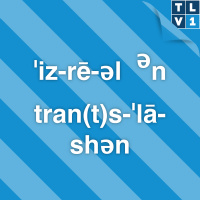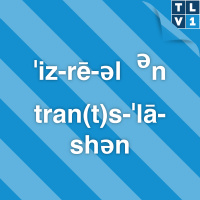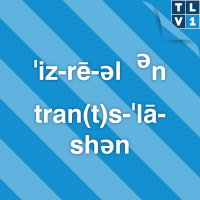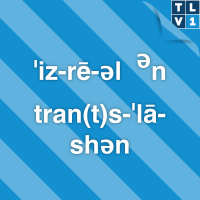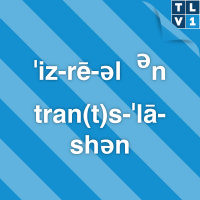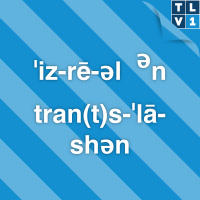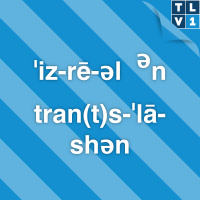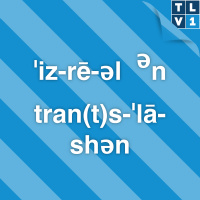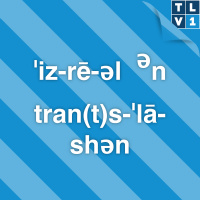Israel In Translation
- Autor: Vários
- Narrador: Vários
- Editor: Podcast
- Duración: 44:23:12
- Mas informaciones
Informações:
Sinopsis
Exploring Israeli literature in English translation. Host Marcela Sulak takes you through Israels literary countryside, cityscapes, and psychological terrain, and the lives of the people who create it.
Episodios
-
Poems of Holocaust Remembrance
04/05/2016 Duración: 07minIn honor of Yom HaShoah - Holocaust Memorial Day in Israel - host Marcela Sulak reads poetry by Paul Celan, including his famous "Death Fugue": "Black milk of daybreak we drink you at night we drink you at morning and midday we drink you at evening we drink and we drink A man lives in the house he plays with his vipers he writes he writes when it grows dark to Deutschland your golden hair Margareta Your ashen hair Shulamith we shovel a grave in the air there you won't lie too cramped" Paul Celan was born Paul Antschel to a Jewish family in Czernowitcz in 1920. The death of his parents in the Holocaust, and his imprisonment in a Romanian work camp are the defining forces in his poetry and use of language. Celan wrote in German. According to Pierre Joris, who translated Celan’s later poetry, he "harbored feelings of intense estrangement from the language and thus set about creating his own language through a “dismantling and rewelding” of German." Texts: Selected Poems and Prose of Paul Celan. Translated by J
-
“Gods Change, Prayers are Here to Stay”
27/04/2016 Duración: 06minToday’s Passover-themed podcast is taken from Robert Alter’s new edition, The Poems of Yehuda Amichai. Host Marcela Sulak reads excerpts from Amichai’s long poem “Gods Change, Prayers are Here to Stay.” "I declare with perfect faith that prayer preceded God. Prayer created God, God created human beings, human beings create prayers that create the God that creates human beings." Listen to last year's Passover podcast, with more Amichai and more information about the holiday of Passover. Text: The Poetry of Yehuda Amichai. Edited by Robert Alter. New York: Farrar, Straus and Giroux. 2015. Music: Ernst Toch - Cantata Of The Bitter Herbs Mendy Portnoy - Pesach Piano Medley
-
Sayed Kashua's farewell
20/04/2016 Duración: 09minSayed Kashua, a Palestinian born and raised in Israel, has a lot to say about the importance of stories and the written word. His latest book to be translated into English is a collection of weekly columns that first appeared in Haaretz newspaper. They’ve been translated by Ralph Mandel into a collection called Native. Host Marcela Sulak reads from the final essay in the collection, in which Kashua contemplates his past as the family prepares to move from Israel to the US. “Don’t come in,” my daughter shouted angrily when I knocked at her door. I went in anyway. I sat down next to her on the bed and despite her back turned to me, I knew she was listening. “You hear?” I said before I repeated to her exactly the same sentence my father said to me when he left me at the entrance to the best school in the country twenty-five years ago. “Remember, whatever you do in life, for them you will always, but always, be an Arab. Do you understand?” Kashua spent last year teaching in Chicago, and it's possible that his m
-
Vilna My Vilna: Chana-Merka, the Fishwife
13/04/2016 Duración: 09minThis week, we feature a new collection of stories by Abraham Karpinowitz, Vilna My Vilna. Host Marcela Sulak reads an excerpt from “Chana-Merka, the Fishwife,” which follows the beginnings of the Max Weinreich Yiddish Institute, today called YIVO and housed in New York. Then in Vilna, Chana-Merka would meet with Dr. Weinreich to hand over lists of "Yiddish pearls" - Yiddish phrases and expressions to be recorded for posterity. Here are some of the Vilna curses Chana-Merka submits to Weinreich: "May you get a piece of straw in your eye and a splinter in your ear and not know which one to pull out first. How long do you think she’ll be sick? If she’s going to lie in bed with a fever for another month, let the month last five weeks. May a fish ball get stuck in your throat. They should call a doctor for you in an emergency and when he arrives, they should tell him he’s no longer needed." Karpinowitz was born in 1913 in Vilna, Lithuania, a city long considered the cultural and intellectual center of Jewish Euro
-
The Beauty Queen of Jerusalem
06/04/2016 Duración: 08minHost Marcela Sulak reads an excerpt from Sarit Yishai-Levi's best-selling novel The Beauty Queen of Jerusalem, recently published in Anthony Berris’s English translation. The novel spans four generations of Sefardic women whose family traces its history in Israel to the Spanish expulsion, and the story centers around the family’s stall in the Mahane Yehuda market in Jerusalem. "Gabriel returned to the shop. He despised the British more every day. He couldn’t stand their haughty presence as they walked through the market in groups in their pressed uniforms, as if they were the lords of the land. Some had come to Palestine from remote villages, simple country boys who’d shoveled cow shit in their English villages, and here in Palestine they behaved as if each of them was the son of the King of England." Sarit Yishai-Levi, a journalist and author, was born in Jerusalem in 1947 to a Sephardic family that has lived in the city for seven generations. She has published four non-fiction books, the first of which is
-
The Travels of the Last Benjamin of Tudela
28/03/2016 Duración: 07minYehuda Amichai is probably the best known Israeli poet in the world. Today, host Marcela Sulak celebrates the recent publication of Robert Alter’s The Poetry of Yehuda Amichai - the largest collection of Amichai’s poetry published in a single volume to date. Alter claims that a complete edition of Amichai’s poetry would be three times larger. Marcela reads from the end of an epic, autobiographical poem “The Travels of the Last Benjamin of Tudela”: "The players sat inside, the talkers on the verandah:half my love, my left hand, a quarter of a friend,a man half dead. The sound of the killed piecestossed into the wooden box is like distant thunder, heralding evil." Text:The Poetry of Yehuda Amichai. Edited by Robert Alter. Farrar, Straus and Giroux, 2015. Music:Shimon Bar - Masa'ot Binyamin MiTudelaAlbioni - Adagio in G Minor
-
A perfectly modern Purim
23/03/2016 Duración: 07minIn the Bus/Purim Eve: "Little kids in costume giggle happilyreal flower childrenand Margalit Tzan’ani sings'The Honey in the Groove'" Today, host Marcela Sulak takes an unusual approach to Purim, reading excerpts from Tikva Levi’s "Purim Sequence," translated by Ammiel Alcalay. We intersperse the first parts of Levi's poem, a Purim bus journey, with excerpts from Itzik Manger’s "Songs of the Megillah" — a retelling of the Purim story in the Book of Esther. Tikva Levi was a feminist activist Mizrahi Jew, born in Ashkelon of Iraqi parents. She died in 2012, at the age of 52. Her life was devoted to the educational rights of Mizrahi Jews in Israel. Text:Keys to the Garden. New Israeli Writing. Edited by Ammiel Alcalay. City Lights Books, 1996. Music:Songs of the Megilla - Itzik MangerNafas - Rabih Abou-Khalil
-
Else Lasker-Schüler's blue piano
18/03/2016 Duración: 09minAmong the excellent new Israeli books to have appeared in English translation in 2015, is Else Lasker-Schüler’s collected poems, My Blue Piano. Host Marcela Sulak reads several poems from the collection, including the title poem: "At home I have a blue piano,I, who cannot play a note. It stands in the gloom of the cellar door,now that the whole world has grown coarse..." Born in Germany in 1869, Lasker-Schüler became a leader of Berlin's Expressionist movement, coining the name "Blue Rider" for her friend Franz Marc's famous school of painting. A few months after receiving one of Germany's highest literary honors, she was assaulted in the streets by the Nazis at the age of 63. After fleeing to Switzerland and Alexandria, she settled in Jerusalem. She died of heart failure before the final defeat of the Nazi regime. Text:My Blue Piano by Else Lasker-Schüler. Translated by Brooks Haxton. Syracuse University Press, 2015. Music (all lyrics by Else Lasker-Schüler):Maya Amir - Mein Blaues KlavierGalia Shargal - I
-
Heathcliff in Tel Aviv: A strange encounter
09/03/2016 Duración: 07minHost Marcela Sulak reads from the opening of Orly Castel-Bloom’s short story, “Heathcliff,” in which a young girl’s crush on the literary figure, Heathcliff, follows her about the city of Tel Aviv. In Castel-Bloom’s signature narrative style, it is difficult to tell reality from imagination, and the results are menacing. “Smadar trailed along Ibn Gvirol Street. The taste of the cigarette was bitter. She looked around to make sure that nobody could see her and spat a big gob onto the pavement. When she raised her eyes, she turned red. Two eyes were watching her. They were Heathcliff’s eyes. Green, slightly slanting and focused on her…“ Castel-Bloom was born in Tel Aviv in 1960 to parents originally from Egypt. A leading voice in Hebrew literature, she currently teaches creative writing at Tel Aviv University. Her post-modern classic, Dolly City, has been included in UNESCO’s Collection of Representative Works, and was nominated in 2007 as one of the ten most important books since the creation of the State of
-
Leaving Lebanon: Ron Leshem's "Beaufort"
02/03/2016 Duración: 06minIn May 2000, the IDF withdrew from Southern Lebanon and Beaufort Castle, which Israel had held since 1982. Host Marcela Sulak reads from Ron Leshem's novel called "Beaufort" in the English translation (the Hebrew title translates as "If there is a Heaven"). It is written as the diary of Liraz Liberti, the twenty-one-year-old head of a thirteen-man commando team stationed at Beaufort during the last winter of Israeli occupation. "...We carried out a comprehensive search, circled the place to determine whether terrorists had beaten a path in through the undergrowth, and which route they’d chosen to booby-trap the target. We unrolled white marking tape wherever we walked in order to know where we’d already been. It was hot and sticky out. The sun had come up too fast. It took us half an hour to complete the first half-circle..." Leshem's novel was made into a film in 2007, directed by Josef Cedar and co-written by Cedar and Leshem. The film won the Silver Bear at the Berlin International Film Festival and was
-
The sound of her steps
24/02/2016 Duración: 07minThe novelist Ronit Matalon has a new novel published just months ago in English translation, The Sound of Our Steps. Host Marcela Sulak reads an extract from the novel, in which the narrator recalls the nightly ritual of hearing her mother's steps leading up to her dramatic entrance to the house: "What did she put on her feet back then, which shoes, or to be more precise, how did she prepare for battle, how, with what? That sense of purpose she had, to the last detail, the sacred air of purpose, how she loved what was useful, necessary." To find out more about Matalon, born in Israel in 1959 to a family of Egyptian-Jewish descent, listen to The One Facing Us: Ronit Matalon’s family album, recorded in November 2015. Texts:Ronit Matalon, The Sound of Our Steps. Translated by Dalya Bilu. Henry Holt & Co., 2015. Music:Rivka Zohar - HaBayit Leyad HaMesilaSchubert - String Quintet in C (Adagio)Chava Alberstein - Pgisha LeEin Kets
-
On the silence of the Yemenites
17/02/2016 Duración: 07minToday host Marcela Sulak reads the poetry of Ahron Almog, a poet, playwright, and novelist who was born in Tel Aviv in 1931 to a Yemenite family. His grandfather, who immigrated to Palestine with the "Ahaleh BeTamar" operation (1881-1882), was among those who established the Yemenite Quarter ("Kerem HaTemanim") in Tel Aviv, where Almog was born. "Yemenites from the transit camp came to my grandfather’s housesat and kept silentwhile one sang the other waitedso I was raised between howlingand silence..." Almog graduated from the Mikve Yisrael Agricultural School and Tel Aviv University, and taught Hebrew literature at a Tel Aviv high school. He is married to the novelist Ruth Almog, and they have two daughters. One of them, Eliana, suggests we consider her father as a poet of quiet protest. Texts:By Ahron Almog: "On the Silence of the Yemenites"; "About My Mother"; "I Have a Longing"; "The Donkeys Have Disappeared"; "Not Coconut"By Eliana Almog: "My father, the protest poet" Music:Aharon Amram - Ayin VelevAhu
-
"After Arbor Day": A Tu B'Shvat story
10/02/2016 Duración: 07minYesterday was the last day in the Hebrew month of Shvat, in which the holiday of Tu B'Shvat - the Jewish new year for trees - is celebrated. So today, host Marcela Sulak reads an excerpt from Ruth Almog’s story, “After Arbor Day,” which is set during Tu B'Shvat. "I saw boys and girls all over the mountainside with spades in their hands, planting saplings in basins of loose soil. When I planted my own little sapling and tightened the soil around it, black earth stuck to my fingers. “Will my sapling live?” I asked myself. An inexplicable dread suddenly took hold of me." Ruth Almog was born in 1936 in Petah Tikva, Mandate Palestine, to parents who immigrated from Hamburg in 1933. She has been deputy editor of the literary section of the daily Haaretz, and writer-in-residence at the Hebrew University of Jerusalem. She is married to the poet Aaron Almog, who will be featured on next week’s podcast. Texts:Ruth Almog, “After Arbor Day,” translated by Dalya Bilu. 50 Stories from Israel: An Anthology. Ed. Zisi Stavi
-
The unspoken language
27/01/2016 Duración: 09minToday, host Marcela Sulak reads the poetry of Anat Levin, who was born in Israel to a mother of Russian descent from Tashkent, Uzbekistan, and a father from Kornitz, Belarus. Her debut book of poems, Revolving Anna, was published in 2008, and won the Ministry of Culture Award for Poetry that year. Here is an excerpt from the poem "Oh Mother": "And it was said:honour thy father and thy motherand they will honour you with twice as much spankingand with two good blows on the backsideso that thy days will be longand pleasant upon the earthand aching under the blankets..." A graduate of the film and television department at Hunter College in New York, Levin worked for many years as a commercial writer for a large law firm in Israel. She now lives in Givatayim with her husband, the poet Adi Assis. Marcela ends by reading Levin's poetry from the 2011 social justice protests. Texts:"Birthday Poem 2005"; "Oh Mother""The Reasons or: Invitation to the demonstration" Music:Gustavo Santaolalla - Babel OSTIoann Rutenin -
-
When Death walks into your cafe, in pajamas
21/01/2016 Duración: 09minHost Marcela Sulak reads from Alex Epstein's story "Death in Pajamas," which appears in the Tel Aviv Noir anthology, edited by Etgar Keret and Assaf Gavron, and translated by Yardenne Greenspan. The story begins: "Death wore a leather jacket over blue pajamas. He opened the door and came in. Without a word, he sat at the counter facing King George Street. It was 7:24 in the morning. I’d just opened up shop and made myself an espresso. To really wake up, you have to blow on a mirror. That’s exactly what I was about to do when Death came in." Epstein was born in St. Petersburg (called Leningrad at the time) in 1971 and moved to Israel when he was eight years old. He is the author of four collections of short stories and three novels; his work has been widely translated. He’s also won the Israel Prime Minister’s Prize for Literature. Text:Alex Epstein, “Death in Pajamas,” Tel Aviv Noir edited by Etgar Keret and Assaf Gavron, translated by Yardenne Greenspan, Akashic Books, 2014. Music:Ziknei Tsfat - HaShachenA
-
The petit bourgeois life of Ayana Erdal
13/01/2016 Duración: 05minAyana Erdal was born to Polish parents who had immigrated to Israel from Paraguay and Istanbul. Today, host Marcela Sulak reads some of Erdal's poetry concerned with family life, translated by Lisa Katz and Rebecca Gillis: "Abandoned dishes pile up in the sink,and lines of ants wake up to resume their march across the floorsand the distance between my son laying his head on the table and my handis like a slice of bread." Winner of the 2005 Israeli President’s Prize in Literature, Erdal studied comparative literature at Hebrew University, and teaches at the Max Rayne Hand in Hand Bilingual (Arabic-Hebrew) school in Jerusalem. She has published two collections of poetry. Text:Poetry International Rotterdam Music:All tracks by Thomas Newman from the "Revolutionary Road" OSTSpeaking Of Production ControlSimple Clean LinesRevolutionary Road (End Title)The Bright Young Man
-
Israel Pincas: Hot or cold, cloudy or clear
06/01/2016 Duración: 07minIn our first podcast of 2016, host Marcela Sulak reads the poetry of Israel Pincas: "And the heat that once was in me became a liquid that froze: A dirty block of ice,Halley’s Comet,An evil omen, they said,A rare visitor in our skies,A tourist in the Solar System,A subject of wonderOnce every few years." Born in Sofia, Bulgaria in 1935, Pincas lost his father at the age of six and immigrated to Mandate Palestine with his mother in 1944. He began publishing poetry in 1951, and is the recipient of the Bernstein Prize, the Prime Minister's Prize and, most recently, the prestigious Israel Prize for Literature (2005). He now lives in Tel Aviv. Text:Poetry International Rotterdam Music:Bulgarian State Radio & Television Female Vocal Choir - Galina Durmushliiska Prochu Se Moma ManolkaBorodin Quartet - Shostakovitch Quartet No.10Philip Glass - The American Four Seasons (Violin Concerto No.2 prologue and movement 1)
-
Hagit Grossman's Palaeolithic paintings
30/12/2015 Duración: 06minIn our last podcast of 2015, host Marcela Sulak reads the poetry of Hagit Grossman: "Once I was a Palaeolithic painter, a sensual hunterplundering the earth, living from hand to mouth,drawing at one end of the cave, all my worries ordinary.I was faithful to nature, transmitting pure and honest beauty,my drawings of movement were snapshots. " Grossman was born in Rishon LeZion in 1976, and now lives in Tel Aviv. She studied photography at Camera Obscura, theatre at Beit Zvi, painting at the Arts Academy, and literature at Tel Aviv University. Painting has clearly influenced her poetics. Text:Time Train: Several translations by Jonathan DayanPoetry International Rotterdam Music:Tesha - Bathe In WhiteL.B.T - Live Beat Tape Vol. 1 (Full Power)Ninet - Child
-
’Our Holocaust’: A tribute to Amir Gutfreund
23/12/2015 Duración: 07minThis week’s podcast is in honor of the novelist Amir Gutfreund, who died four weeks ago at the age of 52. Host Marcela Sulak reads the opening of his first novel, Our Holocaust, a colorful description of the narrator's Grandpa Lolek: "He usually burst into our world in his 1970 Vauxhall, a moribund chassis of protestations upon which only he could impose life. Always wearing a tie, always smoking and dressed in colorful grandeur, he would emerge from the Vauxhall as if he were Kaiser Franz Joself out to wave at the masses from his balcony. Within minutes he would be sitting at the table drinking tea, eating whatever cake he was served, and smoking a cigarette." Gutfreund was born in Haifa to Holocaust survivors. He earned an MA in applied mathematics from the Technion in Haifa, and went on to serve as an officer in the air force doing mathematical research for 20 years. He retired with the rank of Lt. Colonel. Text:Our Holocaust. Amir Gutfreund (2001). Translated by Jessica Cohen. AmazonCrossing, 2006. Furt
-
To live within the song of Natan Yonatan
16/12/2015 Duración: 06minThis week, host Marcela Sulak reads the poetry of Natan Yonatan alongside a soundtrack of songs dedicated to his poetry - each poem is accompanied by its musical version. Here is an extract from "Poems Only Go So Far": "Poems only go so far. It’s time we conceded that,and break the bond of silence that we’ve shared.Our poppies never were any redder than theirs;our sins were never white as the drifting snow,and it seemed we’d always be so; weary birds that never stoppedbut always flew." Natan Yonatan was born Natan Klein in Kiev in 1923, before his family immigrated to Mandate Palestine two years later. Much of Yonatan’s poetry, which won him the Bialik Prize, is inspired by the natural world, and also by the loss of his oldest son, Lior, who fell in the Yom Kippur War at the age of 21. Yonatan died after a brief illness in 2004, at the age of 80. Text:Within the song to Live: Selected Poems by Natan Yonatan, translated by Janice Silverman Rebibo. Gefen Publishing 2005. Music by Gidi Koren, performed by The

